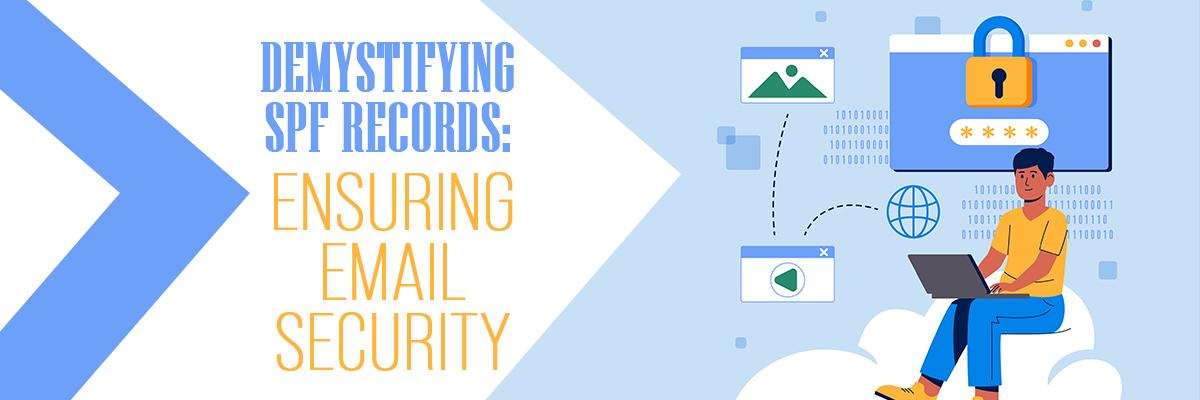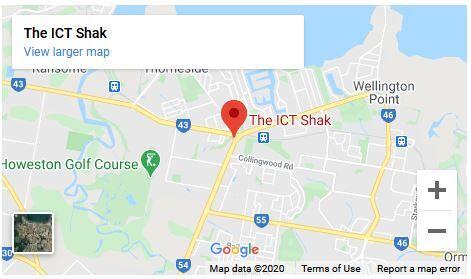Sending and receiving emails has become an integral part of our daily communication. However, with the rise of cyber threats and email scams, ensuring email security and authenticity has become more crucial than ever. In this comprehensive guide, we will delve into demystifying SPF records and DKIM to enhance email security and prevent unauthorised access to emails.
Demystifying SPF Records and DKIM to Boost Email Security
Understanding SPF Records
When it comes to email security and deliverability, implementing Sender Policy Framework (SPF) records is vital. But what exactly is an SPF record and how does it work?
An SPF record is a protocol that helps prevent email spoofing and phishing attacks by specifying which IP addresses are allowed to send emails on behalf of a particular domain. The domain owners list these authorised IP addresses in the SPF record, enabling recipient servers to check the SPF and verify the authenticity of the sender.
By understanding how SPF works and creating SPF records that accurately specify the authorised mail servers, domain owners can enhance email security and prevent email spoofing and phishing.
Implementing SPF for Email Authentication
To set up SPF records for a domain, domain owners need to access their DNS settings and publish the SPF record in the DNS of their domain. This allows email servers to perform an SPF check when receiving emails from the domain, ensuring that the emails are coming from authorised sources.
SPF is important for email communication as it helps prevent email spoofing and phishing attacks, which can harm the reputation of the domain and lead to deliverability issues. When SPF works alongside DomainKeys Identified Mail (DKIM), another email authentication method, it provides a more robust email infrastructure that enhances email security.
Enhancing Email Security with DKIM
DKIM plays a crucial role in email authentication by adding a digital signature to outgoing emails. This signature is created using a private key and verified by the recipient's server using the public key published in the DNS. By creating and managing DKIM records, domain owners can ensure that their emails are not altered in transit and are delivered securely to the recipients.
DKIM helps prevent email spoofing by verifying the authenticity of the sender and ensuring that the emails are sent from legitimate sources. By implementing DKIM alongside SPF and DMARC, domain owners can significantly reduce the risk of unauthorised access to their emails and maintain a secure email environment.
Implementing DMARC for Comprehensive Email Security
Domain-based Message Authentication, Reporting, and Conformance (DMARC) is a vital component of email authentication that complements SPF and DKIM. DMARC allows domain owners to specify what actions should be taken for emails that fail SPF and DKIM checks, providing an additional layer of security against unauthorised email senders.
DMARC is essential for email deliverability as it helps prevent email spoofing and ensures that legitimate emails reach the intended recipients. By setting up DMARC policies to enforce strict authentication standards, domain owners can prevent unauthorised access to their domain and protect their reputation.
Best Practices for Effective Email Authentication
Ensuring SPF, DKIM, and DMARC conformance is crucial for maintaining a secure email environment and preventing email spoofing and phishing attacks. By enhancing email authentication through SPF and DKIM, domain owners can establish a reliable email infrastructure that protects their domain and reputation.
Domain owners should pay attention to DNS settings to ensure successful SPF and DKIM implementation. By configuring the DNS records correctly and regularly monitoring the email authentication methods, domain owners can maintain a high level of email security and deliverability for their domain.
Q: What is SPF (Sender Policy Framework) and how does it enhance email security?
A: SPF is a protocol used to prevent email delivery issues and spam by verifying that the sending server is authorised to send emails on behalf of a specific domain. By creating SPF records, organisations can enhance their email authentication and ensure that their emails are not marked as spam or rejected.
Q: Why are SPF and DKIM important for email communication?
A: SPF and DKIM (DomainKeys Identified Mail) are vital for email security as they help authenticate the sender's identity and ensure that emails are not only delivered but also not marked as spam. Implementing SPF and DKIM records can significantly improve the security of your email environment.
Q: How do SPF records work in conjunction with email servers?
A: SPF works by listing authorised IP addresses in the SPF record associated with a domain. When an email is received, the recipient's server checks the SPF record to verify that the sending server is authorised to send emails on behalf of that domain.
Q: What is the process of creating SPF records for a domain?
A: To create SPF records, you need to delve into SPF by defining the email authentication rules for your domain. By specifying which servers are authorised to send emails on behalf of your domain, you can enhance your email authentication policies.
Q: How does DKIM enhance email authentication for organisations?
A: DKIM adds an extra layer of security by associating a digital signature with the domain name of the sender. This signature validates that the email has not been tampered with and helps ensure the authenticity of the sender.
Q: Why is it crucial for individuals and businesses to manage SPF and DKIM records?
A: Managing SPF and DKIM records is essential to prevent unauthorised use of your domain for sending spam or fraudulent emails. By ensuring that only authorised servers and IP addresses are listed in these records, you can protect your organisation's email reputation.
Q: What steps should be taken if emails are being marked as spam or rejected?
A: If your emails are being marked as spam or rejected, you should review and update your SPF and DKIM records to ensure that they accurately reflect the authorised servers and IP addresses associated with your domain. Additionally, monitoring your email authentication process regularly can help troubleshoot any issues that may arise.
The ICT Shak is a dynamic web development company based in Brisbane, Australia, dedicated to providing comprehensive support for small businesses in enhancing their online presence. Specializing in web development and digital marketing, we offer tailored solutions to help businesses thrive in the competitive online landscape. Our team of skilled professionals is committed to delivering high-quality websites and effective digital marketing strategies that drive results. With a focus on customer satisfaction and innovation, The ICT Shak is your partner in achieving online success. Click here to arrange a quote or call 07 3103 3133.
We specialise in helping businesses with their local search engine optimisation
Find out how your business is ranking in your Local Area
![]() Local Search Rankings
Local Search Rankings![]() Local Listings
Local Listings![]() Reviews
Reviews![]() On-site Search Engine Optimisation
On-site Search Engine Optimisation![]() Social Media
Social Media




